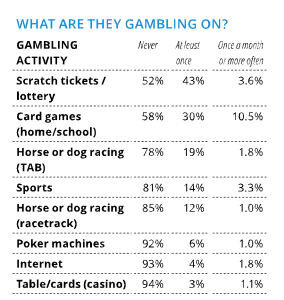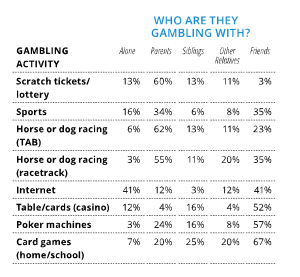Is your child going through normal adolescent ups and downs? Angelina Chisari shares some of the lessons she’s learnt and signs to look out for.
More than half the callers to Kids Helpline are 13 to 18 years old and about one in five callers are worried about mental health – their own, or a person close to them.
“Most of the time they are seeking support and strategies to manage an already diagnosed or established mental health condition, but we also get contacts from children who aren’t diagnosed and who are concerned about initial symptoms or some quite serious symptoms,” says Angelina Chisari.
Most mental-health concerns involve depression, anxiety, self-harm and suicide.
“At night, they can be left with their thoughts and have difficulties sleeping, and they call us because they can’t see their usual psychologist or counsellor then. They also call for crisis support if they have urges around suicide and self-harm – we build a safety net for young people,” says Ms Chisari.
She says it can be hard for parents to work out whether their teenager’s behaviour is normal, or whether it’s something to be concerned about. And she adds that it’s normal for parents to feel anxious and concerned about how to approach mental health concerns with their child.
“We know teenagers tend to be a little more emotional than at other times in life. They are going through a lot of changes developmentally, socially, academically, physically and emotionally.
“The teenage brain is still developing, and this can leave young people feeling really tired, emotional and exhausted. Emotions like anger, sadness, stress and anxiety can be normal, but if
those emotions are excessive, consistent and prolonged over weeks to months, that needs to be explored further,” Ms Chisari says.
“We know teenagers tend to be a little more emotional than at other times in life.“
What is normal and what are the signs that a child may be struggling emotionally?
“Is your child retreating from family, friends or everyday activities? Or have you noticed other changes in their behaviour? Is your child avoiding school? Have they become more irritable or aggressive? Are they using drugs or alcohol? Usuallteenagers don’t want to spend as much time with their parents and their focus shifts to their friends. If you see a change in how much time your child is spending with their friends, that can be a sign that something is going on,” says Ms Chisari.
If your child shows persistent signs of hopelessness or pessimism, don’t minimise those feelings by trying to normalise them. “When you minimise their feelings, your child is less likely to talk to you again about those issues,” says Ms Chisari. “If the issue worsens and those feelings escalate from depression to self-harm. They’re not going to come back to you for help.”
Is your child showing increased sensitivity and heightened reactions to challenges, failure or rejection? Are they more self-critical than usual? Do they talk about feeling guilty or worthless? Your first reaction as a parent is important. “Be supportive and don’t try to convey that everything is in their head, that it’s normal teenage hormones and it will all get better,” says Ms Chisari. “Ask your child what is going on, how they are feeling, acknowledge and validate their feelings and involve them in options for support. Ask them if they want to speak to a counsellor or a doctor or to call an anonymous service like Kids Helpline so what they’re experiencing can be looked at further.”
Experts usually agree that if a condition is affecting a child’s ability to function day to day, or their ability to enjoy life, they may need professional help.
It’s normal for parents to feel worried about how to talk to their kids about mental health. “As parents, we don’t always know what to do or say. It’s OK to feel this way and help is available,” says Ms Chisari. Parentline is a confidential telephone counselling service for parents and carers offering information, referrals and assistance on a range of parenting issues.
Contact Parentline: 1300 30 1300
The Kids Helpline website has a dedicated section for parents that includes advice on how to start a conversation with a young person about their mental health. It also gives information on different forms of mental illness, signs, symptoms and support and treatment options.
Contact Kids Helpline: www.kidshelpline.com.au or 1800 55 1800










